Gilded Elegance: Unraveling the Artistry of Tanjore Paintings
Tanjore painting is a traditional form of art in the South Indian style and was started by the inhabitants of a small town known as Thanjavur of Tamil Nadu. This gives it another name called “Thanjavur painting”. This painting draws its figures, designs, and inspiration from the time when Vedic culture was prevalent in India. Certain remarkable features of a Tanjore painting distinguish it from other paintings. Some of these are pure gold or gold foil coating on gesso work, the use of rich and vivid colors, and the inlay of cut-glass or semi-precious and precious stones. The subjects of most of the Tanjore paintings are Hindu Gods, Goddesses, and saints. The main devotional figure is portrayed in the central portion of the painting and is usually surrounded by various secondary figures.
The process of making a Tanjore painting
Now that the cloth is attached to the wooden panel, a rough sketch of the motifs and figure is drawn onto the fabric. After this, a paste of chalk powder and water-soluble adhesive is evenly applied over the base and smoothed.
Thereafter, the outlines which were made or traced using a stencil are now ready to be beautified and decked with various add-ons. The usual materials for decoration are cut-glass, pearls, semi-precious and precious gems, gold leaf, and laces. 22 or 18 Karat Gold leaves and gems of varied hues are especially inlaid in areas like pillars, arches, walls, thrones, and dresses.
In the final step, the rest of the painting is filled with rich and striking colors such as shades of red, blue, and green. Formerly, the artists used natural colors like vegetable and mineral dyes instead of chemical paints. The entire painting is then cleaned and refined to give a flawless finished look.

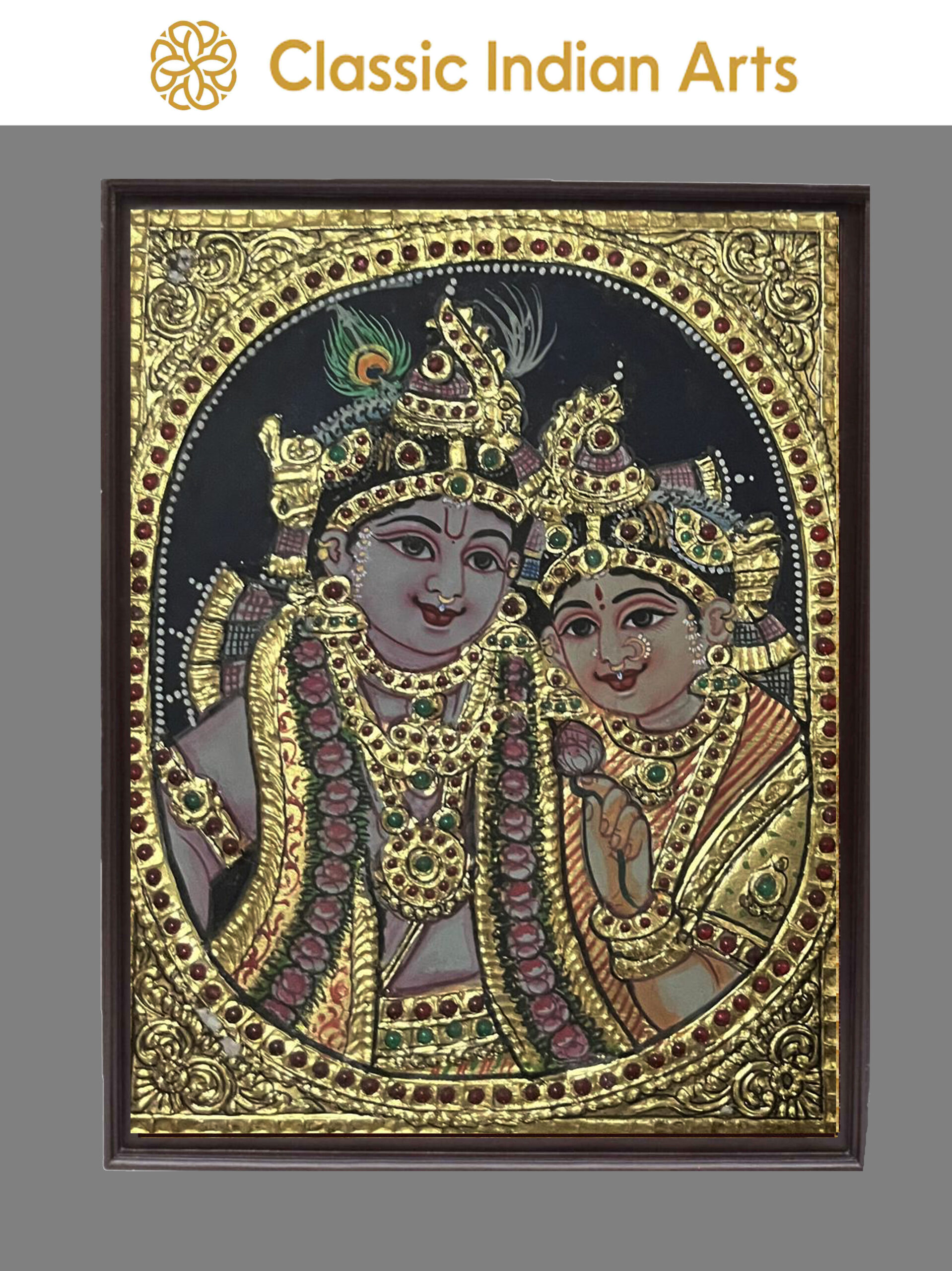
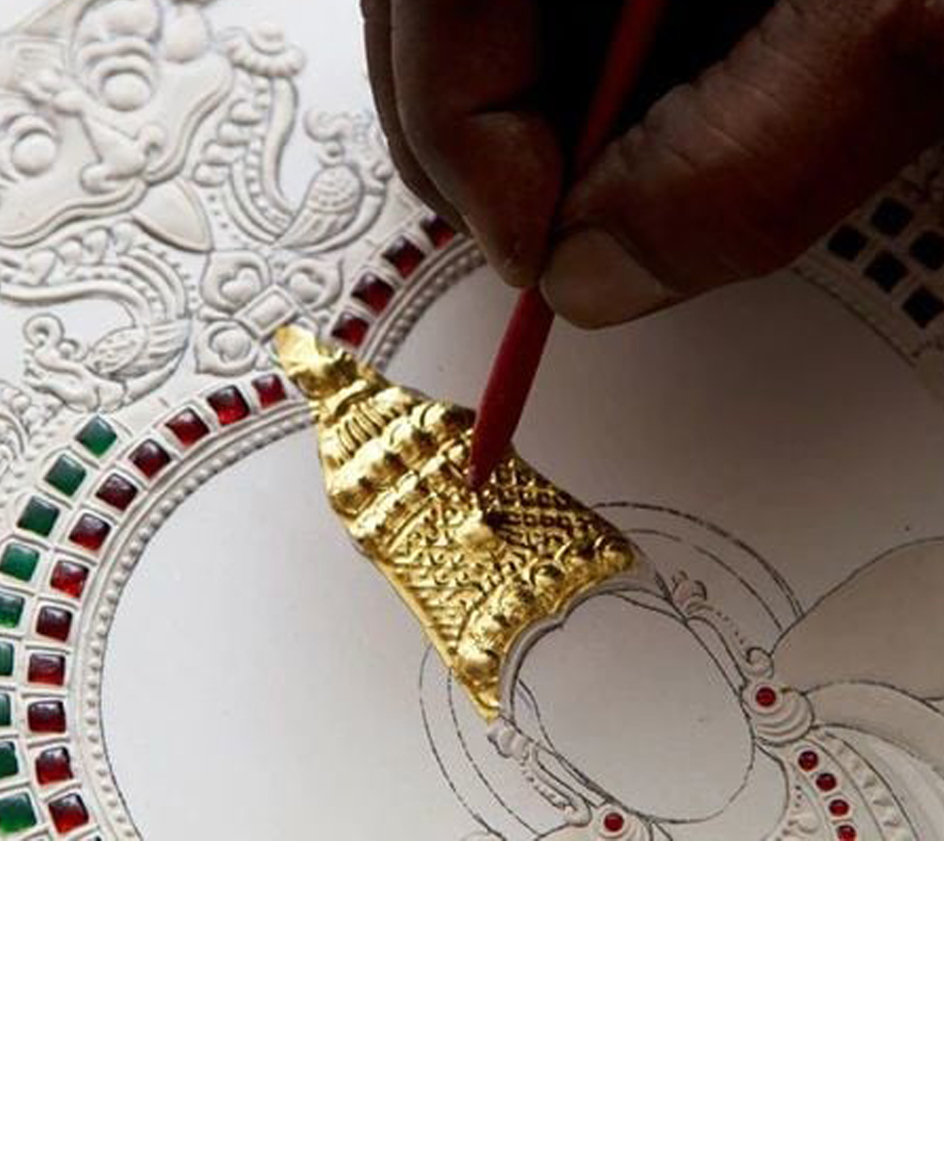

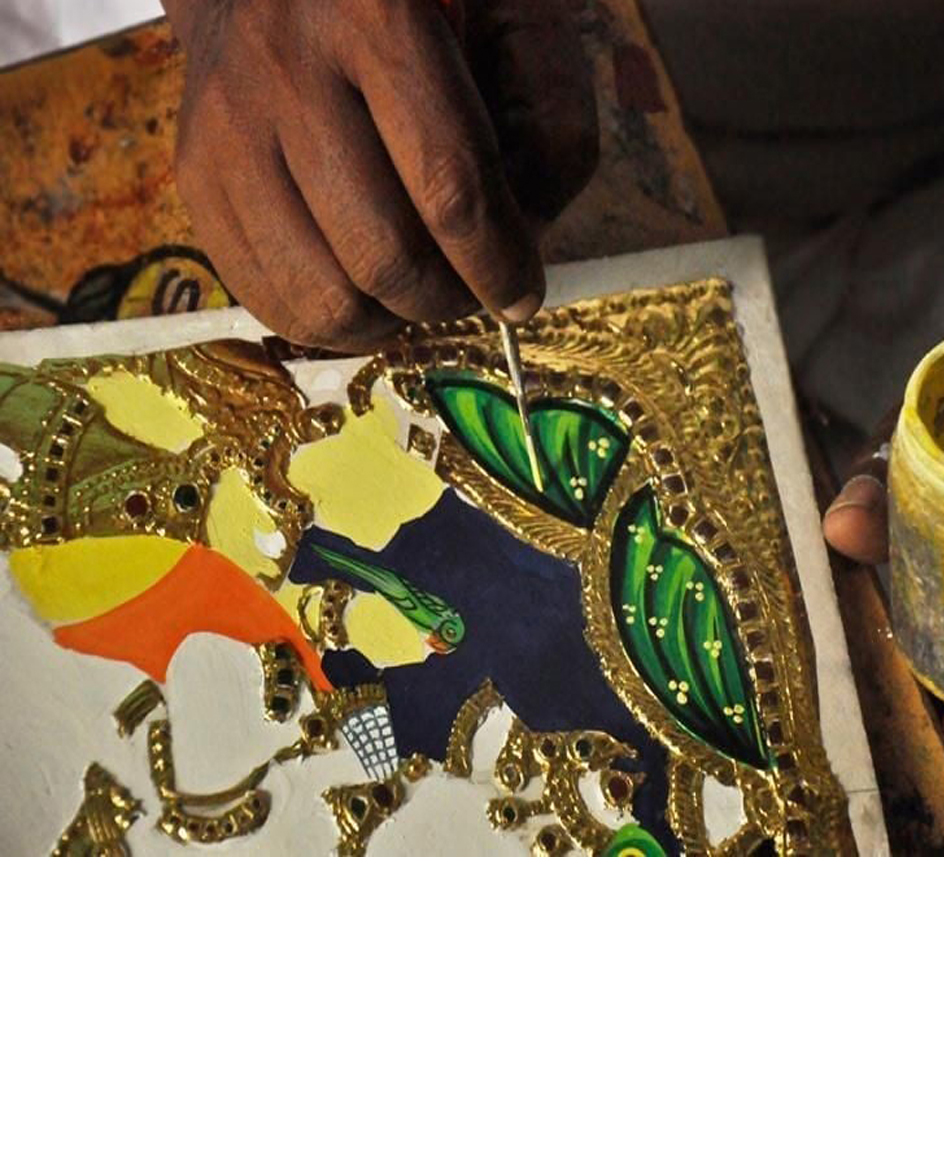
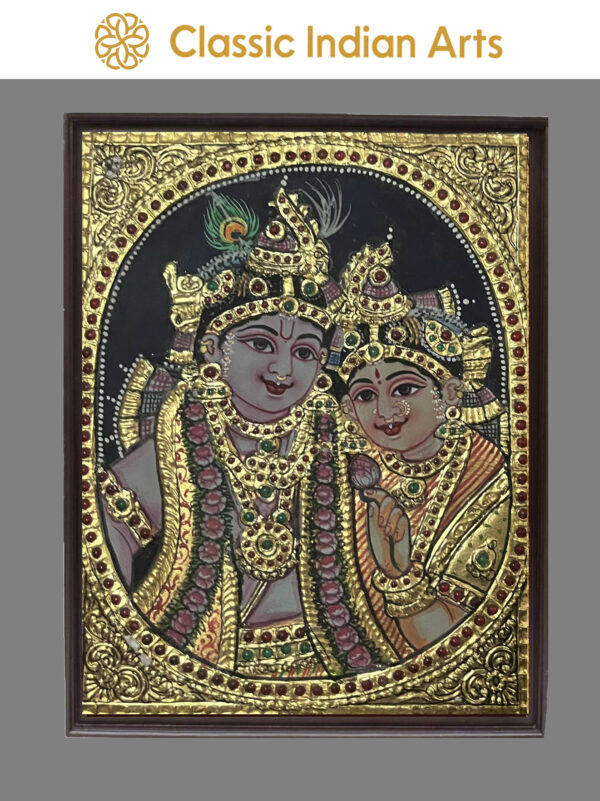



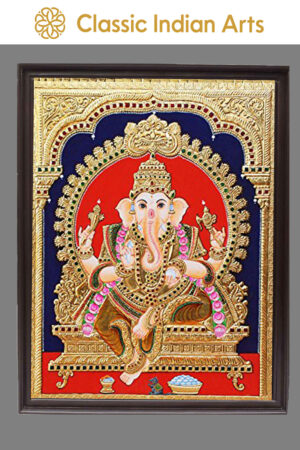
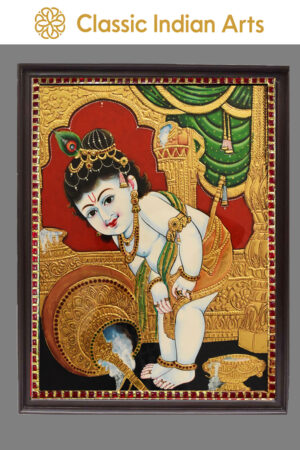


Reviews
There are no reviews yet